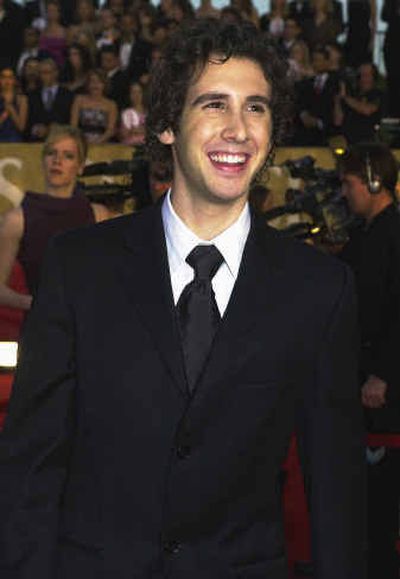Classical crossover

Jo Appleby studied opera for years, won coveted roles in key operas and performed at some of the most revered venues in classical music.
Yet this year you’ll hear her soprano on a semi-operatic, semi-cheesy version of “Unchained Melody” with four other classically trained singers in the group Amici forever — which bills itself as the “world’s first opera band.”
“You get to sing to a wider audience to people who perhaps wouldn’t hear you otherwise,” Appleby says. “I was happy in what I was doing, but this was just a different path, an interesting path.”
And it’s a path chosen by more and more acts with classical backgrounds.
This spring, 17-year-old Hayley Westenra — whom some have called New Zealand’s answer to former classical cherub Charlotte Church — made her U.S. debut with “Pure,” an album of opera, classic songs and airy ballads with an operatic tilt. The fastest-selling classical debut in British history, it has sold more than 40,000 copies in the United States, stellar sales for a classical disc.
Verve Records, which is primarily a jazz label, is readying the debut of Joshua Payne, a hunky, high-powered tenor who’s classically trained, with a voice like the multiplatinum pipes of Josh Groban.
And Norwegian singer Sissel, though not a classically trained performer, has been touring the country showcasing her musical mix of classical songs with a smooth, pop feel.
“I have to do different styles,” says Sissel, who works with the London Symphony Orchestra on her latest album, “My Heart.”
“If I were to only do classical music, it would be boring to me.”
Melding classical music into a pop-palatable project has certainly boosted record sales. Whereas a pure classical record is considered a success if it sells a few thousand copies, classical crossover records can sell upward of 100,000 albums — and in Groban’s case, in the millions.
The 23-year-old Groban, who trained vocally for classical and pop, has been the genre’s biggest success story in years. He made his self-titled debut in 2002 and sold more than 2 million albums; his latest disc, “Closer,” is approaching 4 million.
“The main challenge on these last two albums is getting everything that I like to do on the album; opening my voice up in a classical way, finding music that’s eclectic and working with pop and rock music, but still making it feel like a complete album from beginning to end,” Groban says.
“I didn’t realize kind of what genre I was in until lot of other artists were coming out doing the same thing,” he says. “Classical crossover was not something that I was even aware of when I was making this album.”
It’s not new. Church sold millions of records worldwide after her 1999 debut, and opera tenor Andrea Bocelli has reached the huge Oprah audience with his recordings. Russell Watson, who was not trained as a classical singer, also had big success with his classically inspired debut in 2001.
Then there are pop musicians who have dabbled in classical music. Billy Joel released “Fantasies & Delusions,” an album of his own classical compositions, and Elvis Costello has recorded with soprano Anne Sofie Von Otter and the Brodsky Quartet.
Edward Bilous of The Juilliard School in New York City says classical crossover tends to appeal to an audience tired of slick pop, but perhaps too intimidated by “pure” classical music.
“Basically, classical music does take a little bit more work to get into than pop music … it’s more complex,” he said. “You have to spend time getting into it. People nowadays are not interested in working toward their artistic experience. What they’re interested in is being more entertained.”
Amici forever baritone Nick Garrett says entertainment is a major component for his group, which includes Appleby, soprano Tsakane Valentine, tenor Geoff Sewell and another baritone, David Habbin.
“We entertain — it’s all about the singing,” Garrett says. “People who like classical singing with a little bit of a pop feel, they’re the kind of people we’re trying to entertain. It’s not really about opera, it’s more about a classical style of singing, not a purely pop style.
“There’s some quality in the voice, and some integrity in the singing. I think that’s what people latch onto.”